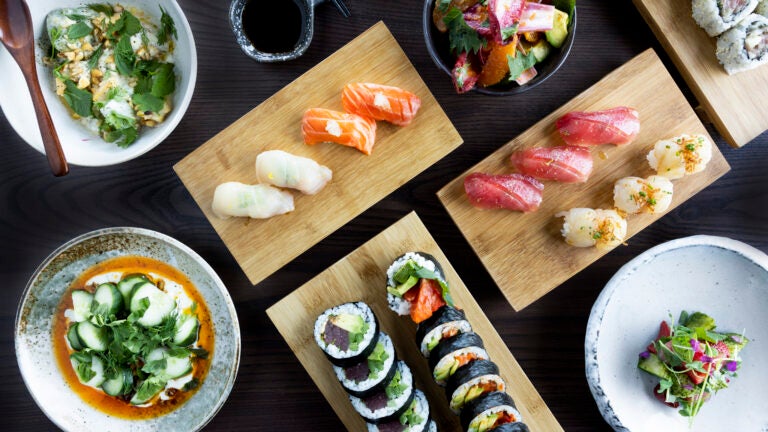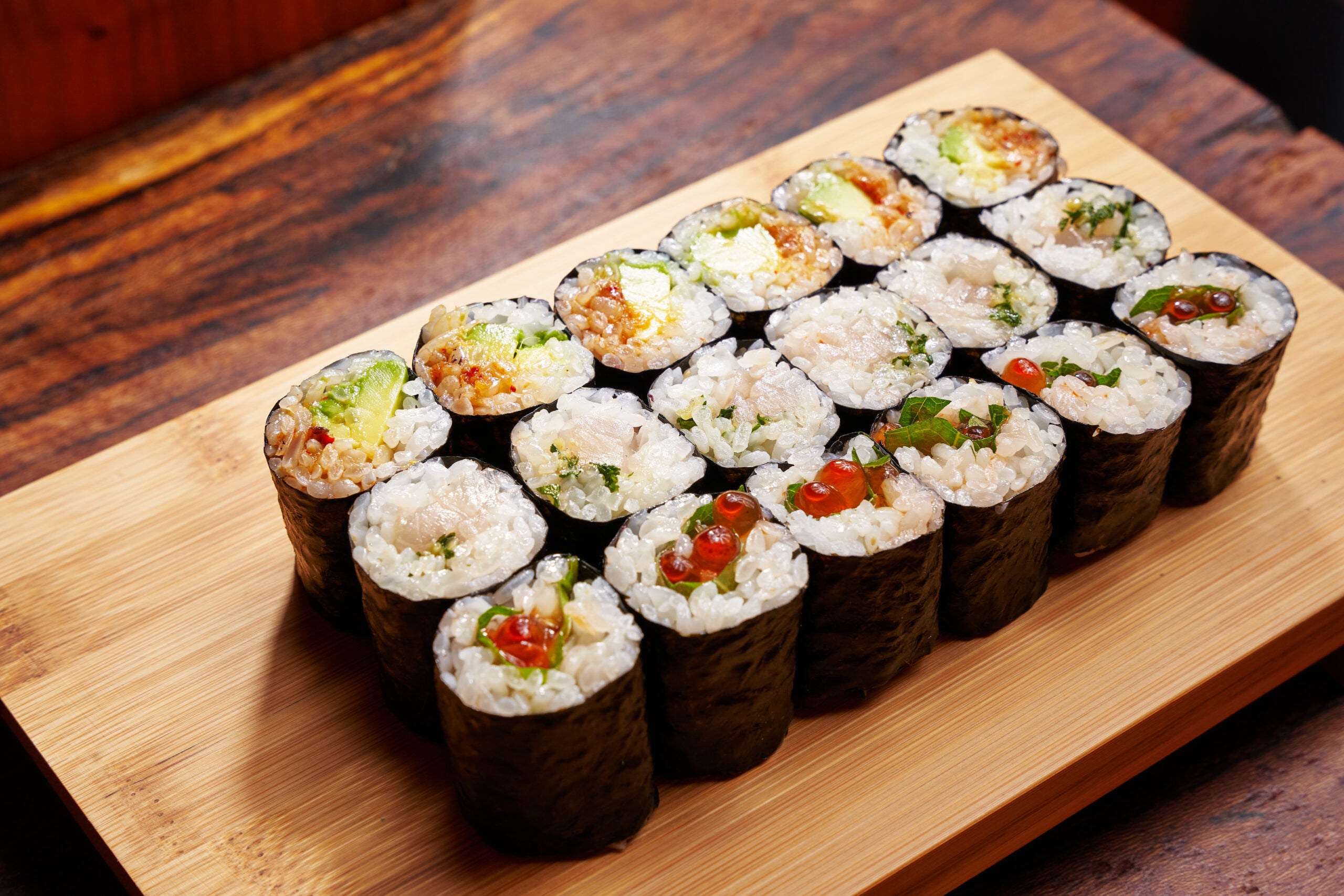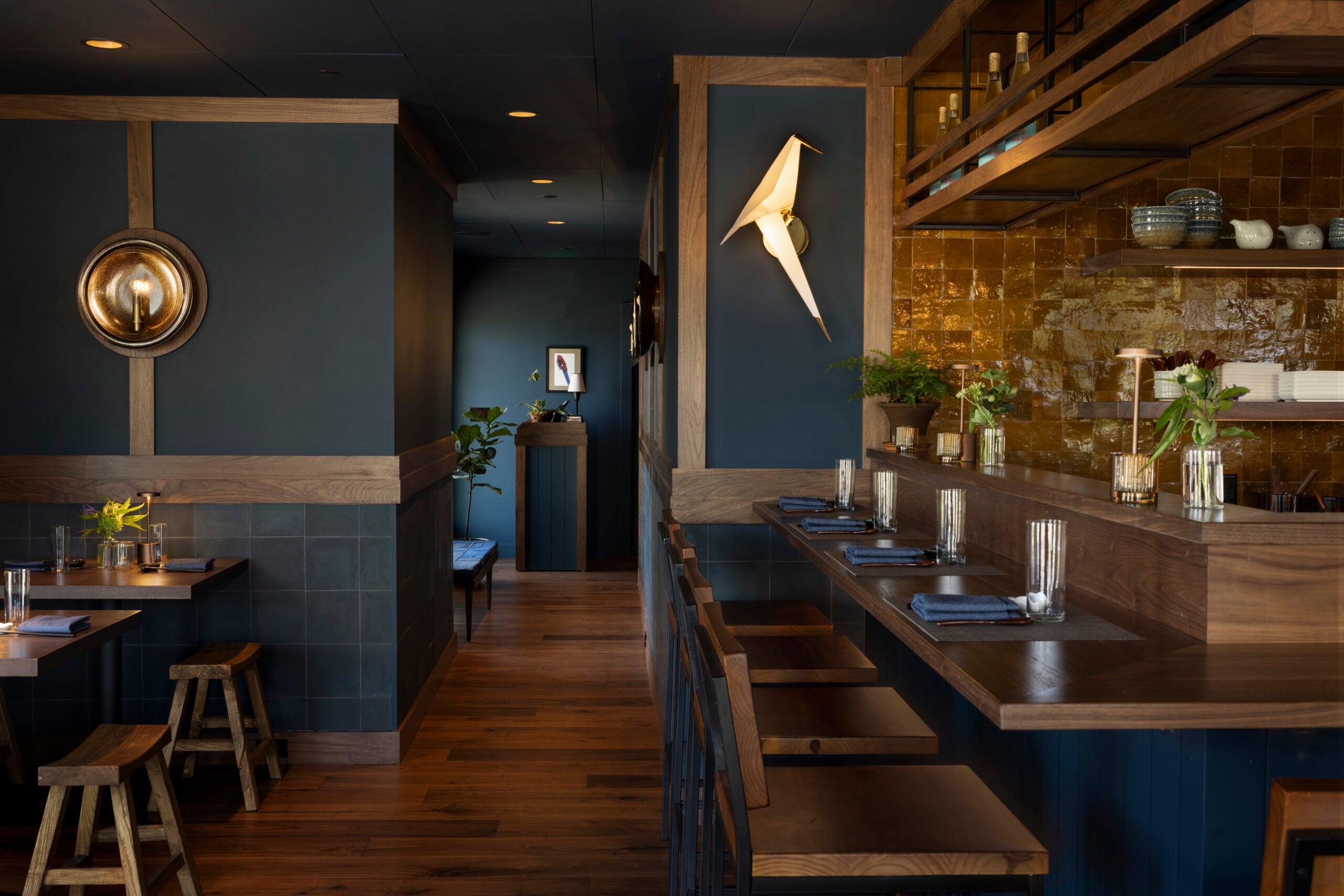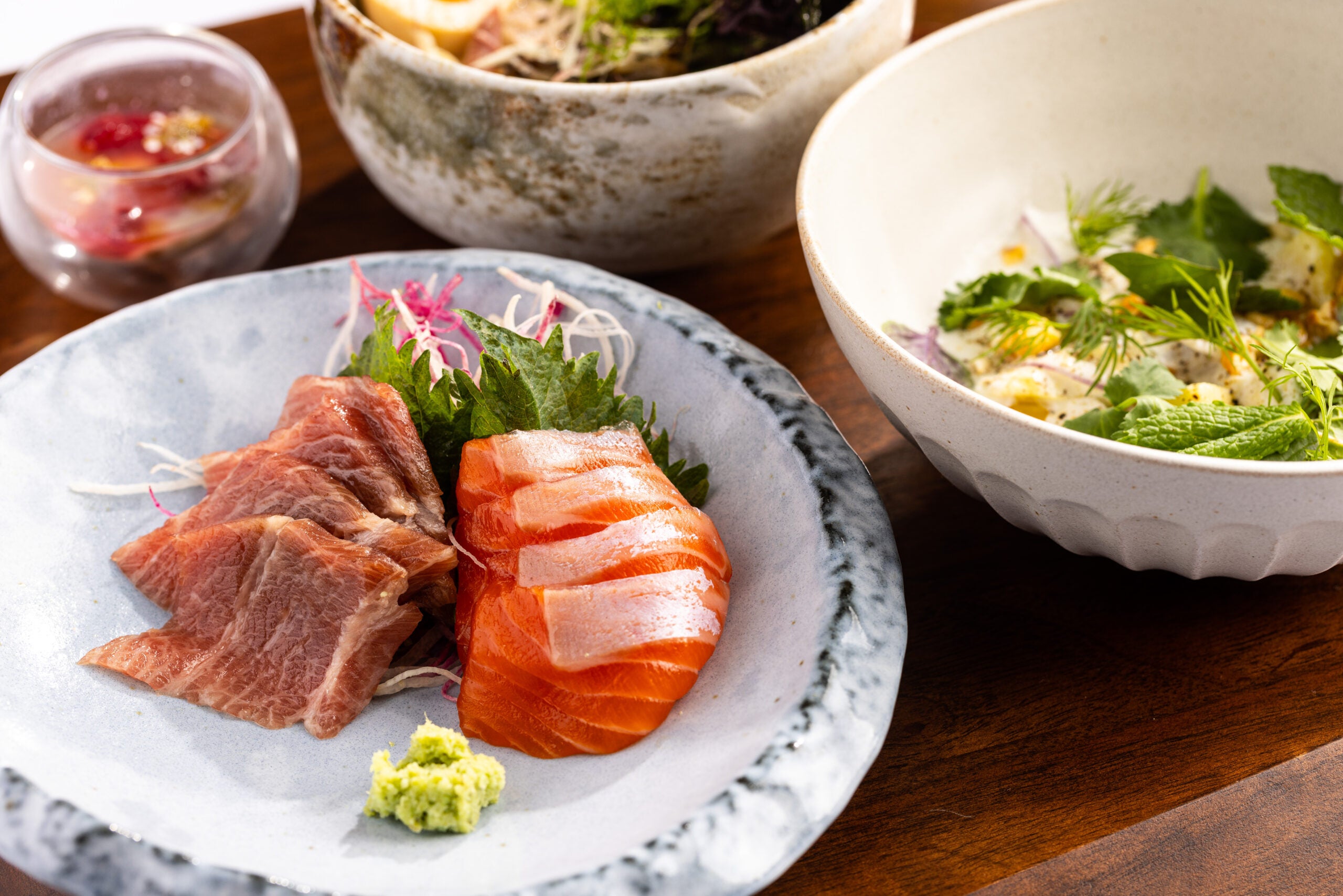Newsletter Signup
Stay up to date on all the latest news from Boston.com

When Chef Jeffrey Miller and TJ Provenzano opened Rosella in New York, the idea was to use high-quality ingredients that are as close to home as possible.
Maybe one of the more difficult kinds of restaurants to try entering the farm-to-table movement is sushi, with few choosing to do it. But that’s what Rosella is, a sushi restaurant utilizing fish from the Hudson Valley, rice vinegar from Pennsylvania, and wine from the West Coast.
As if it wasn’t challenging enough to do this once — an opening that came just after COVID-19 shut down and restricted restaurants in New York for several months — the Rosella team set their sights on a second location.

Since the summer, Rosella has been open in Kennebunkport, Maine, part of the boutique hotel group Kennebunkport Resort Collection that sought them out when expanding operations at the Grand Hotel.
“We didn’t seek Maine out — Maine found us, is what I like to say” Provenzano said. “There was a market for sushi in Maine, and Kennebunkport in particular.”
What makes Rosella “sustainable,” a word that can lose its meaning in an industry that hasn’t much moved the needle when it comes to being more environmentally conscious, is that Provenzano and Miller chose how to define it, then stuck with it.
If the fish served at Rosella is originally caught in the wild, it’s from North America. If they get seafood distributed from fish farms, it’s only farms that rid their waste sustainably, in places as close as Hudson, New York, and as far away as Iceland. They use resources like the National Oceanic and Atmospheric Administration (NOAA) and Monterey Bay Aquarium’s Seafood Watch to decide which fish and fisheries might be best to use based on stock levels of seafood and catch methods.
Using that criteria, what ends up happening at Rosella — and most restaurants that serve sustainable seafood — is that popular sushi ingredients like salmon and hamachi are rarely or ever on a menu that changes seasonally.
“We’re able to serve species that people haven’t seen before, that they’re not familiar with, but also use what the ocean is providing rather than just targeted species,” Provenzano said. “We will never bring in a wild-caught species from Japan, ever. We will never bring in a farmed salmon if it’s not farmed in a sustainable way.”

In many ways the Maine location is a lot like Rosella NYC. And while having a restaurant in New York means a plethora of options when it comes to choosing ingredients, their Maine location gets to have some fun with the resources from its backyard as well.
In fact, the Kennebunkport menu is beaming with catches caught or farmed in Maine, like amberjack and bluefish served as sashimi, or their version of a “California roll” transformed into the “Kennebunkport Cali” using Jonah crab.
“When we’re talking about sourcing locally and trying to keep everything as close to the restaurant as possible, Maine is a fantastic place for it,” Provenzano said. “Obviously you have the ocean, and you have beautiful species that are right outside your door.”
There are some menu items that are up for debate, like the closely monitored bluefin tuna that Provenzano said they usually get from Maine and Massachusetts and serve it when it’s available from their distributors. According to Seafood Watch, bluefin tuna should be avoided no matter where they’re fished from because of their low populations.
Rosella isn’t the first to rethink the way sushi is made in a more sustainable way, but it is one of the few, especially in New England.
Check out our new sustainable clams, mussels, oysters, and scallops guide! Our comprehensive species guides provide more in-depth information about how and where to find sustainable sources of some of the most popular seafood items served in the U.S.https://t.co/g3ih1f98SV pic.twitter.com/judtoeJyp5
— Seafood Watch (@SeafoodWatch) September 13, 2023
The region was home to Miya’s Sushi, considered the first sustainable sushi restaurant in the world, located in New Haven. After decades of awards, including a Champion of Change award from the Obama administration, it closed its brick-and-mortar space in 2021.
And quite a few restaurants try to incorporate local seafood into their menu, utilizing scallops and amberjack. But those few dishes are surrounded by familiar favorites.
“Most folks, they want those three: salmon, tuna, and hamachi,” said Michael Leviton, an adjunct professor in Boston University’s culinary arts and gastronomy programs and former owner and chef of Lumière, the farm-to-table French bistro that he left in 2016 before it closed in 2020. He now teaches students about sustainability of food systems.
Running a sustainably-sourced restaurant can be challenging and pricey, especially after COVID, Leviton said, who noted that you can’t be sustainable if you can’t afford to keep your doors open. A false critique Provenzano said he’s heard from customers is that the fish they’re using must be cheaper because it wasn’t imported.
Leviton also points out it can be hard to define what sustainability is, then stick to that definition.
“It becomes a rabbit hole of ‘yes, and’ or ‘yes, but,’ and you as the chef or owner need to be able to defend that position,” Leviton said. “It’s a difficult sell.”

But the non-financial costs of continuing down the path of non-sustainable seafood are growing harder to ignore: Officials dispute that anywhere from more than 60% to as high as 90% of seafood is imported to the U.S., which varies greatly when it comes to regulating sustainability. Overfishing has long been problematic for various species of tuna, and multiple species of salmon are listed as endangered. Because of this, aquaculture, or fish farming, is fast growing, but that comes with its own problems — pollution and disease, for example.
Rosella doesn’t like to call itself an activist restaurant. Provenzano stressed this point, but added that sourcing ingredients from sustainable or nearby fisheries and farms is something they must do.
“To us, sustainability is the only way to even consider doing,” Provenzano said. “If we want to continue having a restaurant that serves fish from the ocean, we damn well better start paying attention to the quality of the ocean.”
Stay up to date on all the latest news from Boston.com
Stay up to date with everything Boston. Receive the latest news and breaking updates, straight from our newsroom to your inbox.
Conversation
This discussion has ended. Please join elsewhere on Boston.com